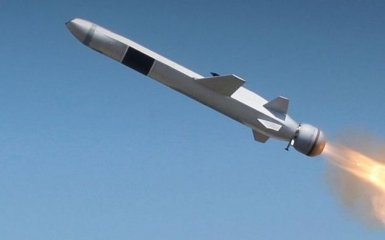On the night of 30 May, the Russian occupiers launched a combined air strike against Ukraine. The attack involved almost two dozen missiles of various types, as well as more than 30 kamikaze drones.
Ukraine destroyed 32 units of Russian military equipment on the night of 30 May
The Russian army again attacked Ukraine on a large scale with various types of missiles and drones. However, the vast majority of cruise missiles and all drones were eliminated by the Air Defence Forces of the Armed Forces of Ukraine.
It is noted that for this attack on the territory of Ukraine, the Russian army generally used:
8 S-300/S-400 anti-aircraft guided missiles,
11 Kh-101/Kh-555 cruise missiles from Tu-95 MS strategic aviation aircraft,
32 shock UAVs of the "Shahed-131/136" type.
This was announced by the commander of the Air Forces of the Ukrainian Armed Forces, Lieutenant General Mykola Oleshchuk.
The enemy attacked the Kharkiv region with S-300/S-400 anti-aircraft missiles.
Launches of cruise missiles were carried out by bombers from the Russian Saratov region.
And the invaders launched kamikaze drones from Primorsko-Akhtarsk (RF) and Cape Chauda in the occupied Ukrainian Crimea.
Air defence operations: details of repelling the 30 May attack
7 cruise missiles and 32 Shahed-type drones were shot down by the forces and means of air defence of the Armed Forces of Ukraine that night.
Defenders of the Ukrainian sky eliminated enemy air targets within 9 regions, namely in:
Khmelnytsk,
Dnipropetrovsk,
Cherkassy,
Kirovohradsk,
Zaporizhzhia,
Odesa,
Khersonsk,
Kyiv,
Vinnytsia regions.
The following were involved in the repulse of the air attack:
anti-aircraft missile units of the Air Force,
mobile fire groups and electronic warfare units of the Defence Forces of Ukraine.








